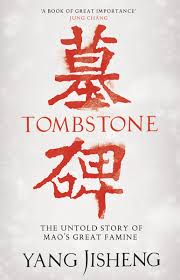Will Hutton drones on a bit sometimes, but it is hard to disagree with this analysis of Britain’s education system, published in Sunday’s Observer. Hutton recommends action against those who buy themselves out of society through private education. It is necessary not just for moral, but for economic reasons. However I reckon it will take another 20 years — if we are lucky.
Hutton:
Believe the hype and Britain is on the verge of a great levelling. Of course it is good news to learn that 1,400 more students from disadvantaged homes will be going to university this year than last. But it is hardly the end of the class divide, as some reports have claimed; 1,400 represents a drop in the ocean compared to the hundreds of thousands from more advantaged homes. The gulf in expectation and life chances between rich and poor remains enormous.
In fact, given the expensive and comprehensive efforts that go into promoting access, anything less than that figure would have been disappointing, even disastrous. Any university that wants to charge more than the basic fee of £6,000 for full-time study or £4,500 for part-time study (which is every one of Britain’s universities) has to sign an access agreement with the Office for Fair Access (OFFA). The university sets out as a quid pro quo detailed plans about the promotion of access. There has been an avalanche of initiatives.
It could be summer schools – the Sutton Trust alone offered summer schools for 1,900 disadvantaged students this summer, joining with 10 universities as part of their access agreements. Or it could be rebates from fees. Every part of the higher education system is keenly aware that it has to do more to attract students from disadvantaged homes (and I write as principal of Hertford College, Oxford). They are aware, too, that Offa is getting increasingly tough about its access agreements. Moreover, they desperately want more disadvantaged students as a matter of principle. An open-minded visitor from Mars might ask, given all this effort over so many years, why has the return been so paltry?
The Independent Commission on Fees (which I chair) closely analysed recent data in a report published last week. From 2010 to 2013, the numbers of students from the most disadvantaged backgrounds attending the 13 most selective universities increased by 9%. For the 30 most selective universities, this figure was 12%. Good news. But the numbers entering from the most advantaged backgrounds also increased over the same period – up by 5% and 14% for the top 13 and 30 universities respectively. So there has been a slight narrowing of the entry gap at the most selective universities from 2010 to 2013, but it remains extremely large.
In raw numbers, in 2013, 11,695 students from the most advantaged backgrounds entered the top 13 universities, but only 1,232 from the most disadvantaged backgrounds, an almost tenfold difference. The ratio drops to just over seven times for the 30 most selective universities. For the entire university sector, the difference in 2013 stood at 2.8. You can bet that very few of the 1,400 more students going to university from disadvantaged homes will be going to the top 13 universities.
This matters. There is growing concern that too much of Britain’s elite sport is occupied by athletes educated at private schools: for example, 41 % of the medals won at the 2012 Olympics went to the privately educated. We know that sporting talent will be randomly distributed among the 700,000 babies born every year. Yet the British system ensures that it will be those lucky enough to be born into households rich enough to educate them privately that will have the best chance to lift their natural sporting ability to Olympic standards. By any moral code, this is not fair, but beyond morality this is a huge squandering of talent.
The same is true of intellectual and academic ability. The Sutton Trust reports that four private schools and one sixth form college in Cambridge send as many students to Oxbridge as nearly 2,000 state schools. Are we to believe that native academic ability is uniquely concentrated in the children of parents rich enough to afford to pay the fees (or live in the catchment area of Hills Road sixth form college, Cambridge)? The differences even come through in personal statements accompanying university applications: 70% of students from private schools with the same grades are generally admitted to top universities compared to 50% from state schools. The key difference is personal statements, testifying to vast differences in cultural capital and experience. Manchester University’s Steven Jones, for example, observes the different impression conveyed by accounts of work experience that involve a Saturday job or a school visit to a business, on the one hand, with a personal statement that cites work with a local radio station, with a City law firm or a designer, on the other.
What is to be done? One of the worries about the £9k fee regime was that it would deter applications overall, disproportionately affecting disadvantaged students. It has certainly devastated part-time higher education – there are now, incredibly, 100,000 fewer candidates studying this way, traditionally a popular choice for those from moderate- and low-income homes. Mature student numbers are also well down. But application rates from 18-year-olds for full-time education to English, Welsh and Northern Irish universities are all up on 2010.
Part of the reason is the recognition of the value of higher education, part is the state of the jobs market for 18-year-olds with wages falling. But also in play might be some reservation about taking on so much debt. For some 18-year-olds, repayment even of tens of thousands of pounds can seem very distant – in a far-off world of adulthood after university when, in any case, your earnings have to be above £21k to start paying. But, equally, for others, the prospect of a chunk of debt might be offputting. Distant prospect or not, less debt is plainly better than more.
One obvious way of persuading more kids from poorer homes to apply would be to universalise the patchwork quilt of access agreement rebates into a standard lower fee for disadvantaged applicants. .
So a skewed fee regime would help, but the reality is that differential university applications reflect the desperately unequal society Britain has become – and also reflect the ongoing offence to any system of morality presented by such widespread private education.
We should open up private schools, invest disproportionately in state schools in weaker neighbourhoods and pay teachers as proper professionals. But above all we should be mobilising against inequality in all its manifestations – in housing, jobs, wages, access to the internet, sport and culture. There is no future for Britain other than as a smart society, and the more our people are enfranchised, the smarter we will be. Universities can, and will, play their part, but they can’t solve society-wide failures by themselves.








